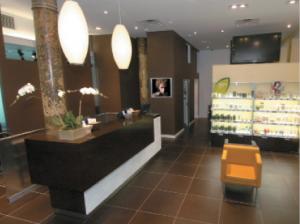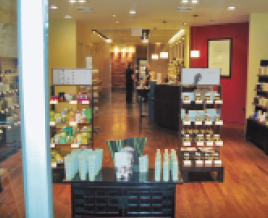 Salon owners and stylists are taking a personal stake in stopping diversion by educating salon clients, and themselves.
Salon owners and stylists are taking a personal stake in stopping diversion by educating salon clients, and themselves.
Think one person can’t do much about the underground networks and gray markets of diversion? Don’t tell that to Sherrie Hudgins. The owner and sole operator at the one-chair Impact Color Salon in Houston has made it her mission to defend her retail business and her clients by educating customers on the causes and corrosive effects of diversion.
“I would prefer that my clients purchase their products from me because, as a haircare professional, I can tell you which products will work for your particular hair type,” Hudgins says in the anti-diversion manifesto posted on her salon’s website, impactcolor.net. “I have first-hand experience with each product I sell. It’s researched and used by myself and other clients. It has a proven track record that I can personally verify. I can also verify where it came from.” The open letter to clients—the link is prominently displayed on the salon’s home page—is an example of the type of outreach many salons are doing to educate their clientele, both online and in the salon.
Hudgins says that after reading about diversion online and in trade publications like American Salon, she decided she wanted to verify the information for herself. So she undertook what amounted to a one-woman research project.
about diversion online and in trade publications like American Salon, she decided she wanted to verify the information for herself. So she undertook what amounted to a one-woman research project.
“I wanted to have answers for my clients,” Hudgins says simply. “Now I have first-hand experience.” She bought products at the local grocery store so she could test their performance at home. “In several cases they didn’t smell the same,” Hudgins says. “They didn’t even look the same,” she adds, explaining that because of her familiarity with the current packaging designs of some professional brands, she could tell that the bottles on local retail shelves were old. Now she warns clients that product that’s been diverted to mass retailers may be outdated, and may not perform as promised.
“Familiarize yourself with current packaging, as packaging does change from year to year,” Hudgins advises on her site. “When in doubt, call the manufacturer with the barcode in hand. They can ring up the batch number and tell you exactly when the product was created. If barcodes are missing or the product looks suspect, do not chance it.”
The Web page offers clients a comprehensive education about spotting diverted product, including indicators such as a vast difference in pricing, spotty selection, and brands that seem to come and go on local retailers’ shelves.
Aveda is one manufacturer that has been extremely successful at combatting diversion, with just about one-tenth of 1 percent of their product involved, according to the Beauty Industry Fund (BIF) 2012 diversion report performed by Nielsen. The company assists salons in their client education efforts by supplying a template of a letter that can be customized and sent to salon employees to make sure the staff is on the same page when it comes to diversion.
Aveda Vice President of Global Trademark Protection and Diversion Control Mike Kennedy credits the company’s unique business relationships for its stellar record on diversion. “Our salon development partners work closely with regional accounts and are in a unique position to address any issues,” Kennedy says. “They can compare salon purchases with sell-through results and determine if there are any issues. They actively canvas retail stores and outlets across the country. This type of intelligence-gathering is extremely important in the anti-diversion efforts Aveda undertakes.”
Scott Buchanan, owner of the Scott J Aveda Lifestyle Salon & Spas in New York City, says he and his staff actively fight diversion and educate customers. “We inform them that any Aveda product purchased outside of a salon, Aveda Experience Center or select Nordstrom can’t be trusted in quality,” he explains.
 With three locations, Buchanan’s salons employ dozens of stylists. “Our employees are allowed to purchase any professional back bar item only for themselves once a month, and our staff signs an agreement to ensure that those products are not risking a diversion issue,” he explains.
With three locations, Buchanan’s salons employ dozens of stylists. “Our employees are allowed to purchase any professional back bar item only for themselves once a month, and our staff signs an agreement to ensure that those products are not risking a diversion issue,” he explains.
Both Buchanan and Hudgins say they’ve been targeted by collectors—diverters who offer salons kickbacks for ordering large quantities of products on behalf of non-authorized dealers. Both rely on their brands’ anti-diversion task forces—Buchanan with Aveda, Hudgins with Redken and Moroccanoil—to handle the problem.
“We’ve been approached by diverters and consistently turn them over to the Aveda Diversion Security Team,” says Buchanan.
“Oh, sure, I’ve been contacted, but I just won’t do it,” Hudgins says. “I don’t care how much money they offer me. It’s just not right.”
PHOTOGRAPHY: COURTESY OF SCOTT J aveda lifestyle SALON and spas